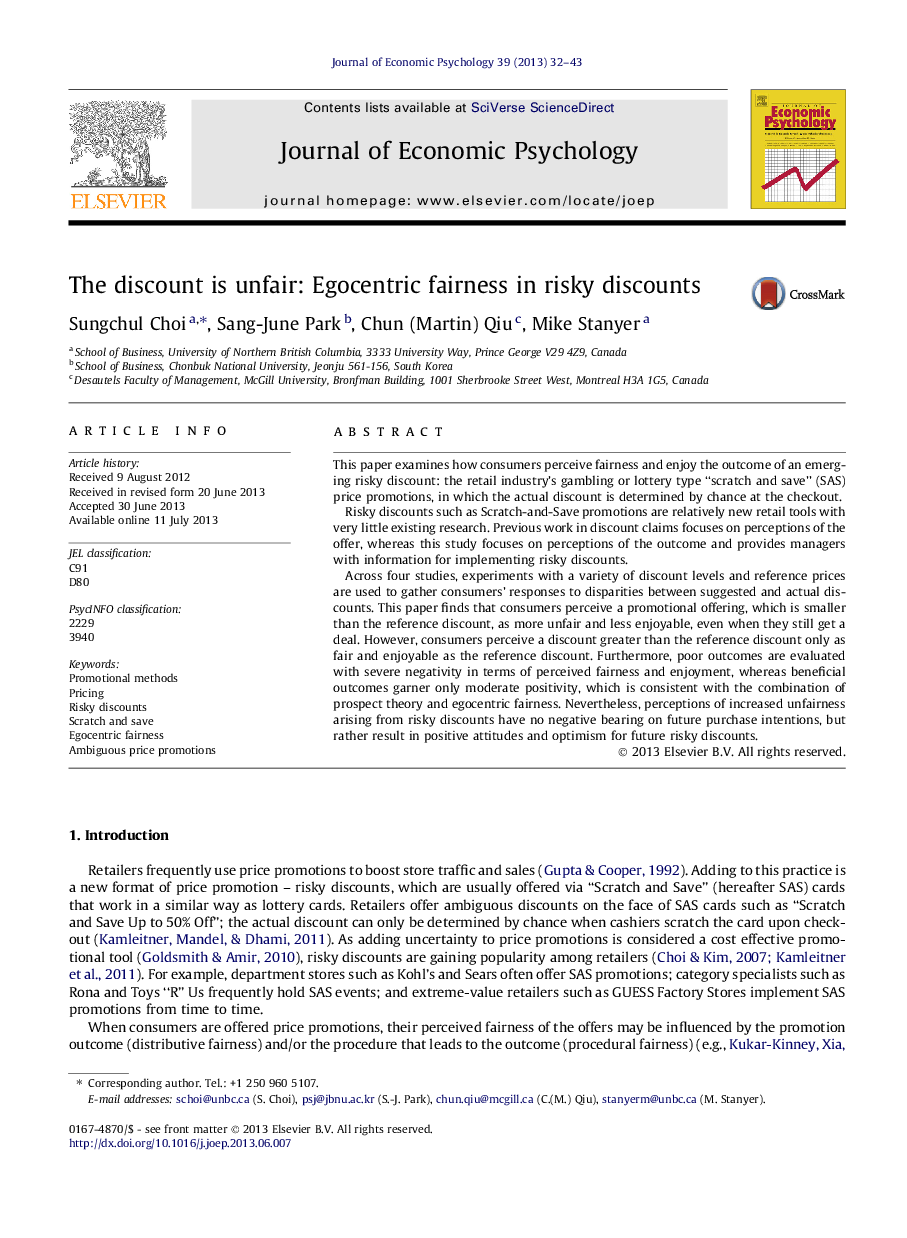| Article ID | Journal | Published Year | Pages | File Type |
|---|---|---|---|---|
| 7244908 | Journal of Economic Psychology | 2013 | 12 Pages |
Abstract
Across four studies, experiments with a variety of discount levels and reference prices are used to gather consumers' responses to disparities between suggested and actual discounts. This paper finds that consumers perceive a promotional offering, which is smaller than the reference discount, as more unfair and less enjoyable, even when they still get a deal. However, consumers perceive a discount greater than the reference discount only as fair and enjoyable as the reference discount. Furthermore, poor outcomes are evaluated with severe negativity in terms of perceived fairness and enjoyment, whereas beneficial outcomes garner only moderate positivity, which is consistent with the combination of prospect theory and egocentric fairness. Nevertheless, perceptions of increased unfairness arising from risky discounts have no negative bearing on future purchase intentions, but rather result in positive attitudes and optimism for future risky discounts.
Related Topics
Social Sciences and Humanities
Business, Management and Accounting
Marketing
Authors
Sungchul Choi, Sang-June Park, Chun (Martin) Qiu, Mike Stanyer,
